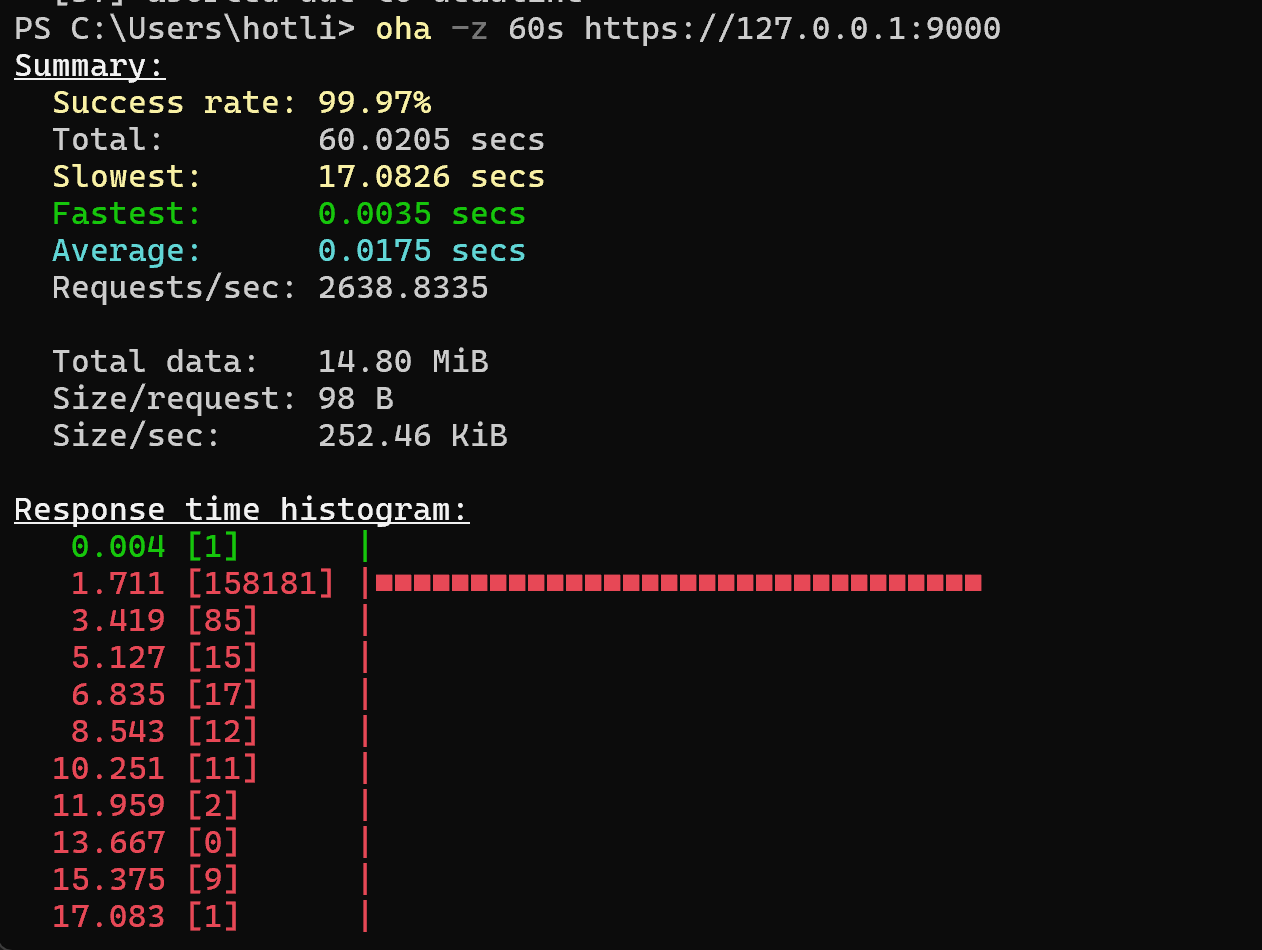const uws = @import("zuws");
const App = uws.App;
const Request = uws.Request;
const Response = uws.Response;
fn html_handler(res: *Response, _: *Request) void {
const html_file = @embedFile("./static/main.html.min");
res.writeStatus("200 OK");
res.writeHeader("Content-Type", "text/html; charset=utf-8");
res.writeHeader("Content-Encoding", "br");
res.writeHeader("Connection", "close");
res.end(html_file, true);
}
pub fn main() !void {
const app: App = try .initSSL(.{
.key_file_name = "./certs/key.pem",
.cert_file_name = "./certs/cert.pem",
});
defer app.deinit();
try app.get("/*", html_handler)
.listen("127.0.0.1", 9000, null);
}
Maybe you could try to use profiling tools to find out where it spends the most time, maybe you can spot some bottleneck that way.
Why don’t you just use Bun, or even uWebSockets.js?
I like zig and want to write zig code not js

